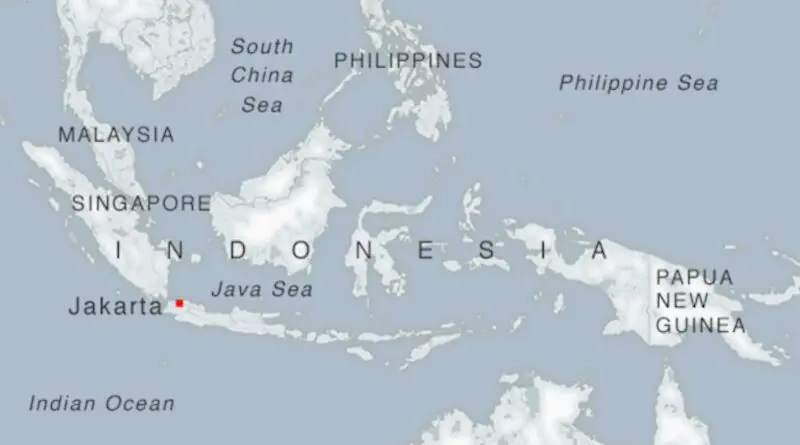Navigating The Bilateral Relationship Between Indonesia-The Philippines For 2024 And Beyond – OpEd
The relationships connecting the coasts of Southeast Asia with Asian nations to the east are exceedingly intricate. In particular in the case of interactions in the past between Indonesia and the Philippines, two of the preeminent maritime powers in modern Southeast Asia, the collusions and disagreements were numerous. The flow, of geopolitical events through 2024, makes a complete appreciation of these two key maritime nations in Southeast Asia vital.
Two main areas call for scrutiny namely maritime security and economic cooperation. In terms of maritime security, an increasing regional concern arises from the ongoing territorial disputes in the South China Sea and Sulu Sea. These disputes incite international tensions and impair regional security by giving rise to piracy, illegal fishing, insurgency, and other impending regional threats. To tackle all these incidents primarily the joint patrols, the intelligence exchange, and the improvement of the feasible existing regional frameworks like the Sulu-Sulawesi Seas Maritime Cooperation Initiative (MCI) would be needed.
Economic cooperation is extremely important. Although bilateral trade volume is increasing, the current structure is unbalanced with a heavy reliance on primary products. Diversification of economic activities is therefore necessary, but exploration of fruitful cooperation in other areas, like tourism and digitalization infrastructure, there is significant potential. Furthermore, being an active participant in regional economic integration initiatives such as the ASEAN Economic Community (AEC) will promote shared prosperity among the involved nations further.
Initiatives such as student exchange programs, cultural events, and tourism endeavors have the potential to influence mutual understanding, increase empathy among nations, and bridge cultural divides. However, the lasting effects of people-to-people exchanges are not taken into consideration in typical considerations and are often overlooked—even if they are considered—by governments, even democratic governments. Yet these lasting effects of exchanges and other cooperative projects are the real goal: not to get out of bad political climates for a couple of weeks, but to humanize the monstrosity before it’s too late. When the only two options are official and unofficial conversations, keeping the conversation going should matter. And because they are premised on the necessity for open communication with one another and emphatic listening to the activists—especially for judges, other lawyers, and bureaucrats assigned by other governments to work on—or work to keep—from them with digression hurtling at them.
Especially concerning the negotiation process in the issue of the South China Sea, this is important, requiring a delicate balance based on the principles of international law and universal norms. Within ASEAN, conflict exists, focusing on the various political systems and regional approaches of different countries, thus creating the adoption of a principle emphasizing open dialogue and friendship. Indonesia advocates a rules-based order, China is more assertive and ASEAN is trying to achieve a compromise pragmatically.
Confidence-building measures, such as military cooperation and joint military capacity-building activities, are necessary to promote trust and enhance regional security. In addition, maintaining dialogue at both the leadership and social levels of communities helps to develop trust among nations, ways that actions like setting a Code of Conduct for Maritime interactions can lead to maintaining security trust and strengthen joint naval patrols including Malaysia, which remains Super Swamp, where misjudgments may escalate into dangerous clashes, the Philippines already on patrol and Singapore ready to join such trilateral super-patrol. Moreover, it is supporting existing systems of regional organizations underway, such as ASEAN, that institutionalize cooperation and build on the existing institutions to interact sharing address challenges that identify ASEAN as a major actor that do not need to start from scratch these regional institutions and substantial dialogue on both reducing disputes in the sea villages or soothing the tension require faces of a new sense of shared identity of this community. Finally, their bilateral agreements right after it is good for moving regional institutions to work with their branches of regional cooperation by deepening and eventually moving toward economic assistance or security aspects. A clear example of this is the use of maritime security as an incremental process.
Indonesia and the Philippines have a strong military strategy that places Indonesia as a prospective leader of the Southeast Asia region, as well as the establishment of a harmonious and strong relationship between these two countries will serve as a middle term to regional peace and progress; because both Indonesia and the Philippines have a common interest therefore it creates a trust and confidence relationship either from Indonesia and the Philippines. This relationship is proved through numerous evidence of their relations throughout previous years. These evidences all point out how the relationship of Indonesia and the Philippines to each other has empowered its ties through systematic cooperation.
While powerful foreign states, such as China and the United States, will undoubtedly exercise tremendous sway, it is incumbent upon ASEAN states to prioritize their interests and resort to diplomacy to address regional challenges. By nurturing stability and first and foremost attacking poverty and inequality, peace can be cultivated throughout Southeast Asia.
Though there may be future hurdles to cross, by cooperating and understanding each other, a strong relationship between Indonesia and the Philippines can be established.
The opinions expressed in this article are the author’s own.
References
- ASEAN Briefing. (2023, May 17). Indonesia-Philippines Maritime Security Cooperation: Challenges and Opportunities. https://asia.nikkei.com/Politics/International-relations/Philippines-and-Indonesia-agree-to-strengthen-security-cooperation
- ISEAS Yusof Ishak Institute. (2022, September). The Philippines and Indonesia: Challenges and Opportunities in a Strategic Partnership. https://www.iseas.edu.sg/programmes/regional-strategic-political-studies-programmes/philippines-project/
- Lee, S. M. (2020). The Philippines and Indonesia: An Uneasy Partnership. ISEAS Working Paper No. 2020/11

